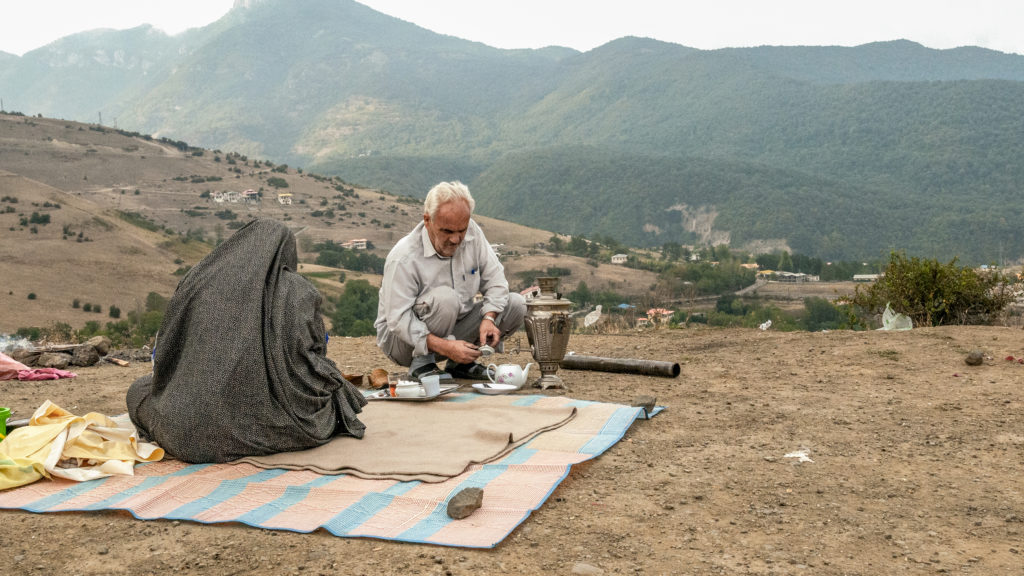A young girl named Rita looks up, dark eyes wary, mouth unsmiling. She has few clothes and despite being 12 years old, looks no more than 5. Malnourished and overworked, Rita was rescued from selling water on the streets of Niger, hundreds of miles from her village in Benin, seven years after a relative sold her into slavery.
Rita is one of an untold number of children sold into slavery each year, according to Carmen Morris, founder of Sanctuary of Moses, a Miami-based nondenominational organization committed to combating child slavery.
“You looked into her eyes and all you saw was pain,” she said. “Every time I pray I see Rita’s eyes and it really touches me in terms of getting this project moving.”
This year marks the 200th anniversary of the British Parliament outlawing the slave trade. However, from labor camps in Palatka, Fla., to brothels in Cambodia, slavery still exists. Between 600,000 and 800,000 people, mostly women and children, are trafficked across national borders while millions more are bought and sold within countries, according to the U.S. State Department’s Office to Monitor and Combat Trafficking in Persons.
“Once you know the truth you have to — you’re compelled to — do something to help make a difference,” Morris said.
To mark the anniversary, “Amazing Grace,” a movie chronicling British Parliamentarian William Wilberforce’s leadership in the abolition movement, opened in theaters the last weekend in February. It gets its name from Wilberforce’s friendship with John Newton, the author of the famous hymn and a former slave trader who teamed up with Wilberforce to end the trade. Both men were committed Christians. The movie — rated PG for mild language and thematic elements involving slavery — had a strong first weekend, finishing third among the top 20 movies on a per-theater average.
Morris recounted the horrors of the “African holocaust” that occurred during the years of the trans-Atlantic slave trade — horrors including beating, “breeding,” rape and death.
“Women and children and men were shackled and treated as subhuman, which is why the connection with the movie ‘Amazing Grace’ is so great,” Morris said. “Newton, who was in the slave trade, recognized, ‘ … This is not what you do to fellow humans,’ and he was converted. He met the Lord like Paul did and then he was able to influence others like Wilberforce to help make a difference.”
Morris, born in Kingston, Jamaica, recalled visiting the Gate of No Return, a memorial near the beach in west Africa marking where slaves would board ships, never again to see their homeland. “I just wept because … between the 1400s and 1800s my ancestors, it’s likely were shipped out of west Africa. And here it is we’re in the 2000s and slavery still persists? There’s something wrong with that.”
Sanctuary of Moses dedicated a school in Benin (a west African country) for children who have no educational alternatives, have been trafficked or are at risk to be trafficked, Morris said. The organization is also establishing a campus to include a clinic, school and chapel.
“Slavery, trafficking in children, I believe it pierces the heart of God and I really believe He wants to see us as believers do something about it,” Morris said.
Zach Hunter, a 15-year-old member of nondenominational Grace Fellowship church in Atlanta, decided to do something about modern-day slavery. Three years ago, he started a fund-raising campaign dubbed “Loose Change To Loosen Chains.” The student-led campaign calls on youth to gather change and sell T-shirts to help abolish slavery.
“I really believe in my generation,” Hunter said. “A lot of kids are volunteering their own time on the weekends to help other people out. And that sort of gives me hope for my generation.”
Hunter also is a spokesman for The Amazing Change, a campaign to carry on Wilberforce’s vision of mercy and justice inspired by the movie “Amazing Grace.”
The Amazing Change is circulating a petition to abolish modern-day slavery. Its goal is to gather 390,000 signatures — the same number amassed by Wilberforce in support of abolition — to present to the U.S. House and Senate as well as other global leaders. The petition can be found at www.myspace.com/lc2lc.
“When they know the hurting other people are in — once they sign [the petition] and realize that they’ve just given their name to the cause, there’s almost a visible change about them,” Hunter said. “It’s sort of like that cause has become their own. That’s changed them from the inside out.”
Morris, who became a believer at a Billy Graham crusade in Jamaica, said those who know God’s compassion and love as a Father should engage themselves in helping to free slaves — especially children.
Through Sanctuary of Moses, Morris said she hopes to permanently house children who have no place to go after they are rescued from slavery.
Emphasizing the absence of “safety nets” for children, Morris said her organization is currently raising funds eventually to serve 200–250 children from ages 4 to 17 at a sanctuary village.
“Jesus said suffer the little children to come unto me and forbid them not,” she said. “Time again you see in the Scriptures children have a special place.” (BP)
Leaders use ‘Amazing Grace’ to spotlight modern-day slavery
Related Posts

Persecution of believers in Iran ‘very high’
March 31, 2021
Less than 1% of Iranians consider themselves Christians. Islam is practiced by a majority of citizens in the country of

Pregnant Christian miscarries after beating by Hindu extremists
March 1, 2021
DEWADA, India — A pregnant woman lost her baby after being beaten by Hindu extremists who attacked Christians at a

Christian girl, 12, kidnapped, forced to marry
January 21, 2021
FAISALABAD, Pakistan — A 12-year-old Christian girl kidnapped last year and forced to marry a 45-year-old Muslim man was found

Armenians displaced from Nagorno-Karabakh fear their medieval churches will be destroyed
December 15, 2020
A six-week war in Nagorno-Karabakh, a mountainous region in the South Caucasus, ended on Nov. 9 after Russia brokered a peace

Share with others: